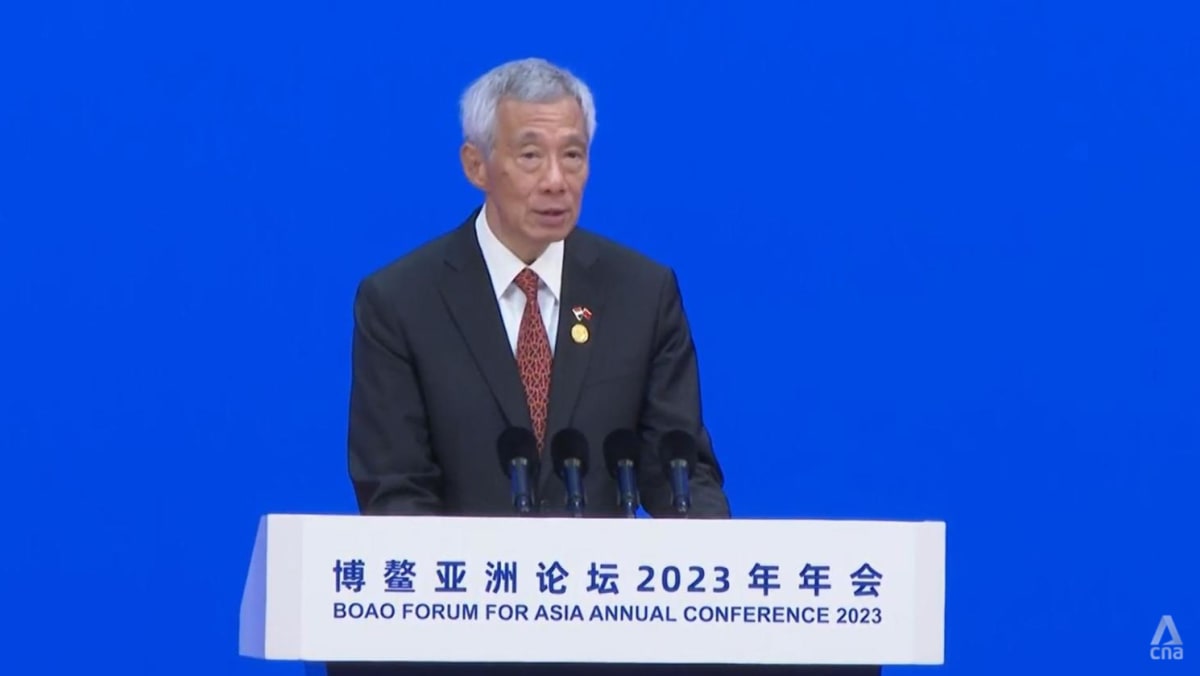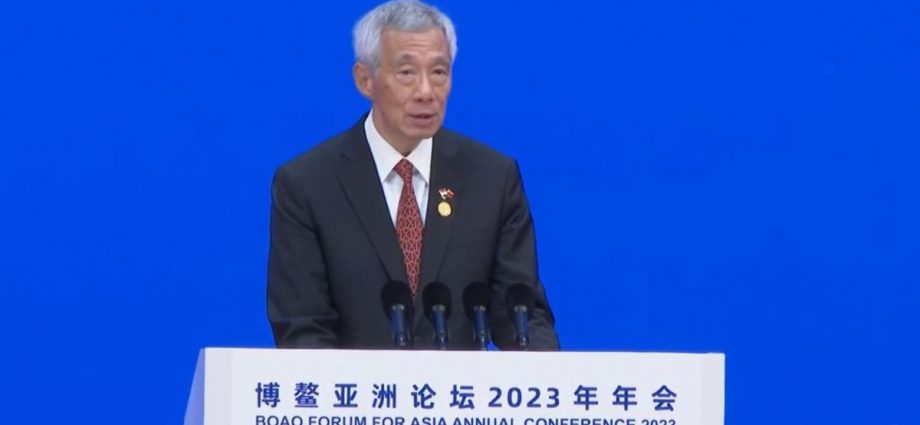
SINGAPORE: Any clash between the United States and China will have grievous consequences for themselves and the world, Singapore’s Prime Minister Lee Hsien Loong said on Thursday (Mar 30) at the Bo’ao Forum for Asia (BFA) in China.
On the fourth day of his official visit to China, Mr Lee spoke at the opening ceremony of the annual conference in the Hainan province about China’s relationship with the US, where he noted the “most worrying” state of relations between the two superpowers.
The audience comprised business and world leaders, including China’s Premier Li Qiang and Malaysia’s Prime Minister Anwar Ibrahim.
“Big powers have a heavy responsibility to maintain stable and workable relations with one another, because any clash between them will have grievous consequences, for themselves and the world,” Mr Lee said.
“And yet the US and China are at odds over many intractable issues, including trade and investments, supply chains, cybersecurity, emerging and critical technologies, as well as freedom of navigation.
“We hope that China and the United States will succeed in stabilising their relationship, and establish sufficient mutual trust and respect to cooperate in areas where their interests are aligned.”
The Bo’ao Forum, inaugurated in 2001, is a platform aimed at promoting common development through regional economic integration. It will last four days.
Apart from US-China relations, Mr Lee spoke about Asia’s “enormous promise”, as well as the need for countries in Asia to deepen cooperation with one another.
“(Asia is) home to more than half the world’s population, and Asians are increasingly better educated, and brimming with energy, ideas, and dynamism,” he said.
Realising Asia’s promise depends on the region remaining stable, inclusive and open. Like every other region, Asia is affected by the troubled global environment and strategic tensions, he added.
He said the COVID-19 pandemic has severely disrupted societies, and that Russia’s invasion of Ukraine has profoundly undermined the rules-based international order. He also pointed to the tensions between China and the US.
“The world feels the impact of these tensions keenly. Progress on tackling urgent problems such as climate change, energy and food security, and pandemic preparedness has been severely impeded,” Mr Lee said.
“Economic imperatives are being overshadowed by national security concerns. Countries are pursuing self-reliance and resilience, by ‘on-shoring’ or ‘friend-shoring’ their supply chains.
“The bifurcation in technological and economic systems is deepening. This will impose a huge economic cost on countries, as well as further exacerbate rivalries and frictions.”
Against this context, countries in Asia should continue to promote economic cooperation and good relations between China and other countries in the region, said the Prime Minister, noting that China has become the largest trading partner for almost every country in Asia.
Regional and global initiatives such as the Asian Infrastructure Investment Bank, Belt and Road Initiative, and the Global Development Initiative, have been launched.

